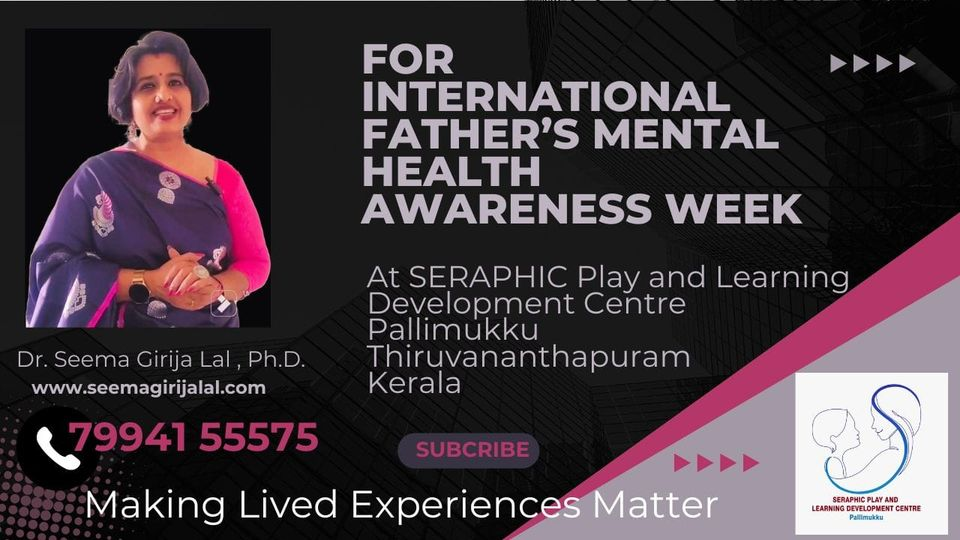Men’s Mental Health, specifically focusing on fathers of children with disabilities.
June 22, 2024

LINK HERE : AUDIO IN MALAYALAM :
We'll use the acronym "PEACE" to symbolize the peace and balance fathers can achieve in their mental health journey.
Let's explore how we can find PEACE."
"P stands for Protective Barriers. Many men grow up in a culture where they are expected to be providers and protectors. From a young age, they may not have learned how to express their anxieties or sadness. Instead, they often cope by distracting themselves and building a shield around their emotions."
"E is for Emotional Disconnect. As adults, this protective shield can make it difficult for men to talk about their feelings. They fear being perceived as weak. This emotional barrier isn't just about their own feelings; it extends to their interactions with others, including their children."
["A represents Anxiety Management. When fathers are used to protecting themselves from their emotions, they may struggle with their child's emotions too. They might give in to their child's demands to avoid seeing them sad, unintentionally reinforcing unhealthy coping mechanisms. Or they might be too harsh, discouraging any expression of anxiety or sadness, because those emotions are difficult for them to handle."
"C stands for Critical Tensions. Connecting with their wives' anxieties and sadness can also be challenging. Balancing their own emotions with those of their child and spouse can feel overwhelming. This can lead to men withdrawing completely or resorting to logic when their partner is seeking validation and emotional support."
"E is for Empathy and Support. Over time, a wife's tone may shift from anxious to frustrated and critical, leading to increased tension. This can create a cycle of disconnection, where both partners feel misunderstood and unsupported."
"But there's hope. Understanding these dynamics is the first step towards change. Fathers can learn to express their emotions, support their children's emotional growth, and connect more deeply with their partners."
"Remember, it's okay to seek help. Therapy and support groups can provide valuable tools for managing these challenges. Let's break the cycle and create a healthier environment for ourselves and our families."
